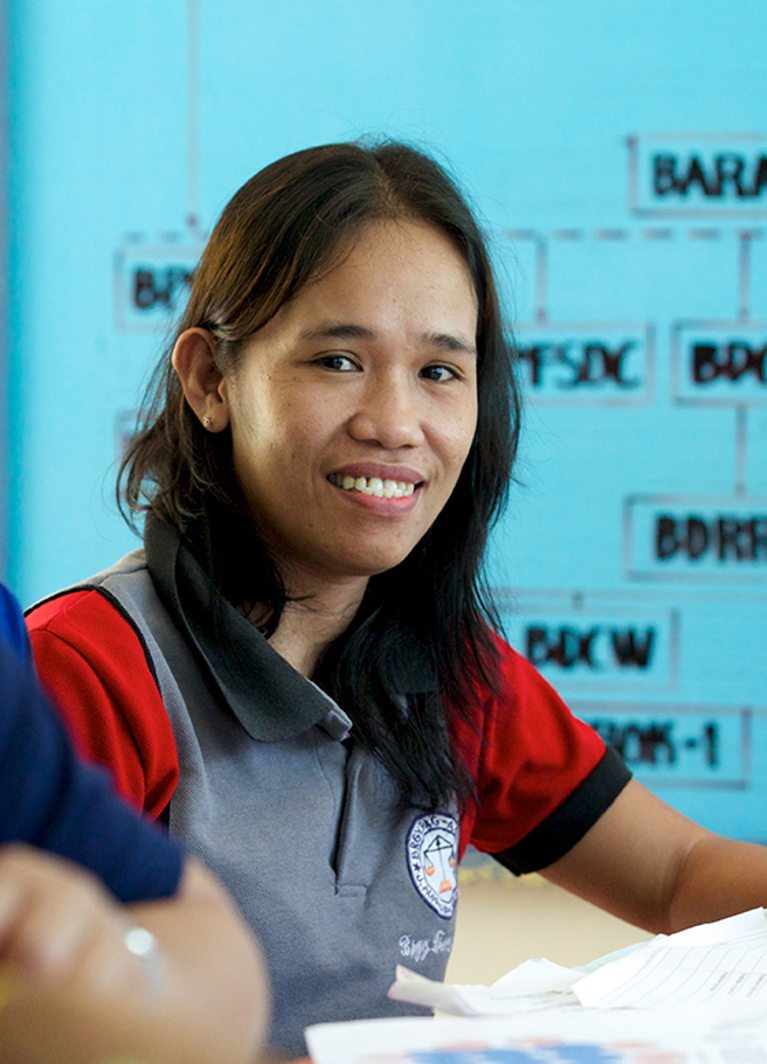COVID-19 surge in Philippines threatens to overwhelm hospitals
23 Sep 21

The Philippines is experiencing a devastating surge in COVID-19 cases, as the country battles its fourth wave of the pandemic.
More than 2.4 million COVID-19 cases have so far been recorded in the Philippines (WHO), the second highest in South-East Asia. Hospitals are fast running out of beds, with escalating case numbers pushing the nation’s healthcare system to the brink.
The Delta variant has now been detected in all 17 regions across the Philippines and the low vaccination rate across the country means that many of the most vulnerable members of the community are at risk.
There are also growing concerns about the prolonged disruption to children’s education. Classrooms have been closed since March last year and many students, particularly those living in rural areas, do not have access to a computer or internet at home to facilitate remote learning.
COVID-19 in Philippines at a glance
(as of September 23 - source: WHO)
2.4 million
confirmed COVID-19 cases
20,000
Average daily cases
17%
The percentage of the population that has been fully vaccinated
Supporting Manide indigenous families during COVID-19
Through our partners, Socio Pastoral Action Centre Foundation of Daet (SPACFI), we are supporting Manide families to protect their families and communities from COVID-19.
The Manide are indigenous people who live in the Camarines Norte province. Indigenous minorities in the Philippines often experience discrimination and disadvantage, limiting their education and employment prospects.
Some Manide communities live in remote areas where it is difficult to access health care and accurate information about COVID-19. The lockdown has presented an additional challenge for our local partner, as they reach out and support vulnerable Manide communities during this pandemic.
Our local partner, SPACFI, turned to technology to overcome some of these obstacles. By using mobile phones, project staff were able to mentor, guide and support project participants during lockdown. Some income-generating groups created their own social media chat groups to stay in touch with project staff. These online platforms enabled the groups to promote and sell their products, so that they can earn an income to support their families.
The local government also granted special permits to allow one SPACFI staff member to visit remote project areas, while following strict COVID-19 preventive measures.
With your support, Manide communities can continue to improve their access to health care, safe drinking water, food assistance, sanitation and sustainable livelihoods training during this pandemic. They can also attend COVID-19 orientation sessions and learn about the importance of health protocols, such as wearing face masks, washing hands with soap, rubbing alcohol, and maintaining social distancing.
Program snapshot
374
Manide people have increased knowledge of personal hygiene and basic health practices
343
children received hygiene kits, containing soap, toothpaste and tooth brush.
225
Manide families learnt farming techniques to improve their vegetable production

Women in the Philippines are leading their communities during COVID-19
Your support is helping to empower women in the Philippines to raise awareness about COVID-19 in their communities.
Aloma has always been a natural leader and is passionate about helping others in her community. With the support of our local partner, Socio Pastoral Action Center Foundation Inc. (SPACFI), she participated in logistics management and disaster risk reduction training. The vital skills that Aloma learnt from the program means that she can lead and support her community during this current COVID-19 emergency.
As one of the frontline workers in her community, Aloma helps to educate others about the importance of adhering to health protocols to limit the spread of the virus.
She also serves as one of the Barangay officials in her community, coordinating with the Municipal Disaster Risk Reduction Management Council to support their COVID-19 response. This includes providing data and reports to the council, supporting checkpoints in quarantine areas and assisting Locally Stranded Individuals (LSI) – people who are stranded and unable to return home due to the lockdown.
“The most I can do to lead other people is to empower women by explaining to them the situation and advise them to follow and cooperate in implementing rules in the community, especially in this time of pandemic because they are the ones who can spread important information to their families.”